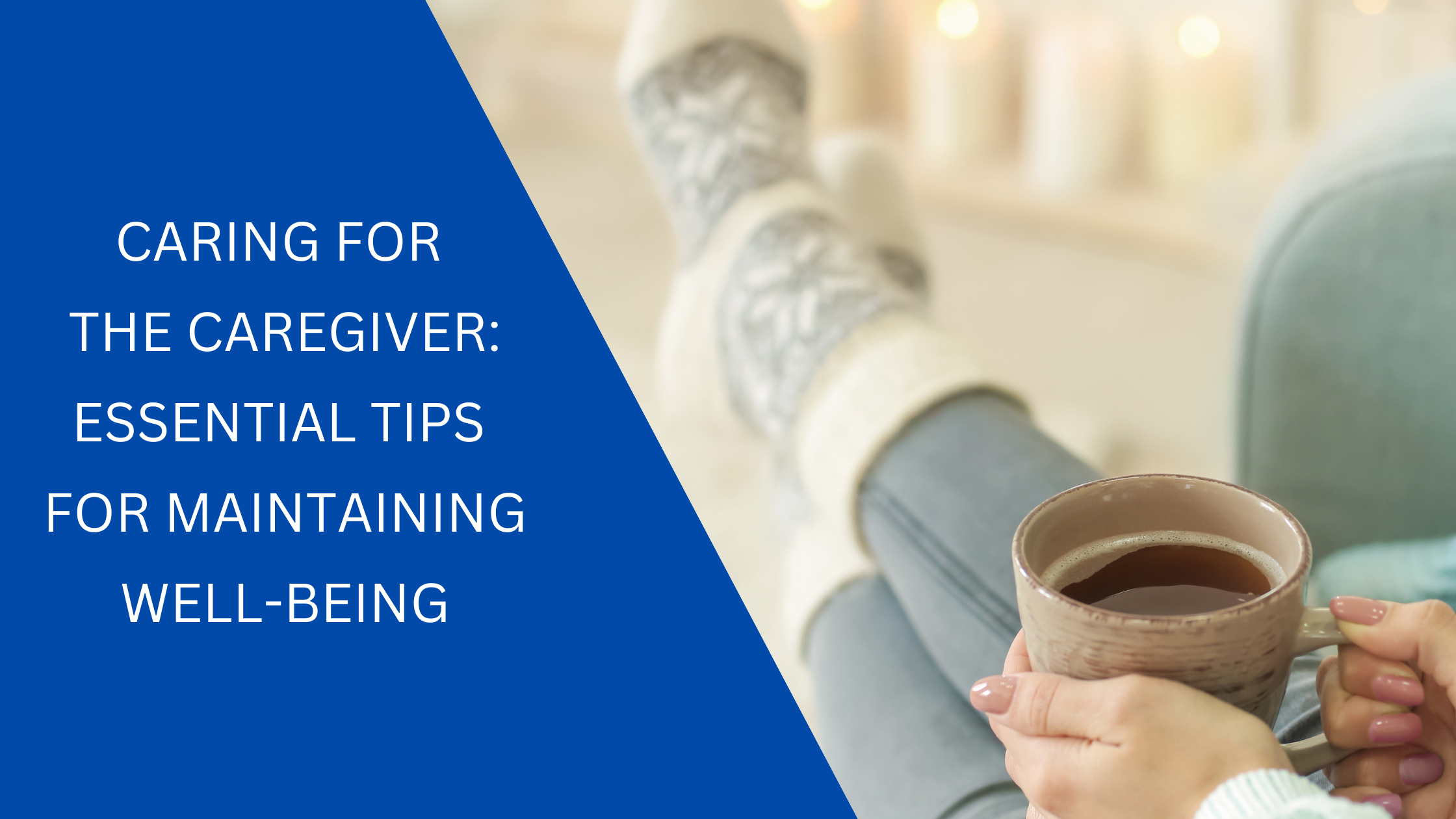
Caregiving is an incredibly demanding role. Whether you are working as a professional in a healthcare setting or as a loved one providing support at home, the physical, social, emotional, and mental strains can be overwhelming.
That is why we have prepared these essential tips to find balance and relief physically, socially, emotionally, and mentally.
Physical Relief
Physical care is crucial due to the demanding nature of your role as a caregiver, which often involves significant physical exertion and prolonged periods of stress. Because these unique physical challenges in caregiving can majorly impact health and effectiveness, the following sources of physical relief are key:
Prioritize Self-Care
Ensure you set aside time each day for activities that promote physical well-being. This might include exercise, stretching, or taking a few minutes to relax.
Manage Stress
Incorporate stress-relief techniques into your routine, such as deep breathing exercises, meditation, or yoga. These practices can help manage the physical stress that often accompanies caregiving.
Get Adequate Rest
Sleep is central to strong physical health. Aim for 7-8 hours of quality sleep each night. If caregiving duties interfere with your sleep schedule, try power naps or short rest periods during the day.
Healthy Eating
Maintain a balanced diet rich in nutrients. Proper nutrition supports overall health and energy levels. Consider meal prepping or keeping healthy snacks readily available to prevent unhealthy eating habits.
Social Relief
Caregiving can be an isolating task due to its constant demand for your time, talents, and energy. As a result, social relief is essential to combat the feelings of loneliness and exhaustion that can come with being a caregiver. It can be hard to know how to find such relief, however, so we have put these simple steps together to help you improve your social connections:
Build a Support Network
Connect with other caregivers or support groups, either in person or online. Sharing experiences and advice can provide emotional support and practical tips.
Communicate Openly
Discuss your needs and limitations with family members, friends, or colleagues. Open communication helps others understand your situation and can lead to practical support or assistance.
Set Boundaries
Clearly define and communicate your personal boundaries. It’s important to balance caregiving with your own social life and hobbies. Learn to say no when necessary to avoid overcommitment.
Schedule Social Activities
Make time for social interactions and activities you enjoy. Whether it’s a coffee date with a friend or a virtual meetup, these interactions can provide a much-needed emotional boost.
Emotional Relief
Emotional relief is a major game-changer because it helps manage the intense stress and emotional strain associated with caregiving responsibilities. By addressing your emotional needs in the following ways, you can sustain empathy, patience, and effectiveness, ultimately providing better support to those in your care:
Seek Professional Help
Don’t hesitate to reach out to a counselor or therapist. Professional guidance can help you navigate the complex emotions associated with caregiving and provide coping strategies.
Practice Self-Compassion
Be kind to yourself and recognize that caregiving is a challenging role. It’s okay to acknowledge your feelings and take time for self-care without guilt.
Engage in Relaxing Activities
Incorporate activities that bring you joy and relaxation, such as reading, gardening, or listening to music. These activities can help alleviate emotional stress and improve your mood.
Journaling
Writing about your experiences and feelings can be a therapeutic way to process emotions and reflect on your caregiving journey.
Mental Relief
Mental relief helps manage the cognitive and emotional demands of caregiving, which can be overwhelming and exhausting. Mental respite not only improves your ability to handle daily challenges but also supports overall emotional resilience and the quality of care you can provide.
Set Realistic Goals
Establish achievable goals for yourself and your caregiving responsibilities. Break tasks into smaller, manageable steps to prevent feeling overwhelmed.
Educate Yourself
Stay informed about the condition or needs of the person you’re caring for. Knowledge can reduce anxiety and increase your confidence in handling caregiving challenges.
Practice Mindfulness
Engage in mindfulness techniques such as meditation or deep breathing to stay present and reduce mental stress.
Additional Tips for Employed Caregivers
Working as an employed caregiver presents a unique set of challenges that require a proactive approach to self-care and professional development. Balancing the demands of caregiving with professional responsibilities can be daunting, but these additional tips can help ease the weight of your occupation:
Utilize Workplace Resources
Many employers offer Employee Assistance Programs (EAPs) that provide access to counseling, stress management resources, and support groups. Take advantage of these resources.
Communicate with Your Employer
Discuss your caregiving responsibilities with your employer if possible. They might offer flexible work arrangements or additional support to help you balance your job and caregiving duties.
Seek Professional Development
Engage in training or development opportunities to enhance your caregiving skills and career prospects. This can provide a sense of accomplishment and personal growth.
Final Thoughts
Caring for a loved one or working as a professional caregiver is a role filled with an equal measure of challenges and rewards. Prioritizing your own physical, social, emotional, and mental well-being is crucial for sustaining this important work. By implementing these tips and seeking support, you can maintain your health and effectiveness and lead a more balanced life. Remember, taking care of yourself is not a luxury—it’s a necessity for your well-being and the quality of care you provide.
Let Us Help You Today!
We welcome the opportunity to speak with you about careers at The Cottages and the care that our residents receive at our Idaho locations. We are experts in assisted living, memory care, respite, adult day care, and have been serving seniors for over 20 years. Our small home-like senior living homes and specially-trained team members offer an atmosphere that promotes the well-being of your loved one.
If you have any questions, would like to tour one of the Idaho assisted living or memory care homes, or speak with one of our licensed administrators, please fill out the form below. Please mention which location(s) you’re interested in.



